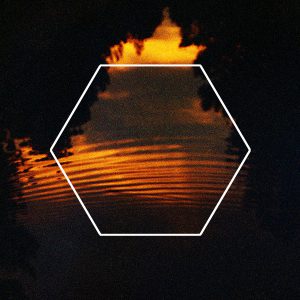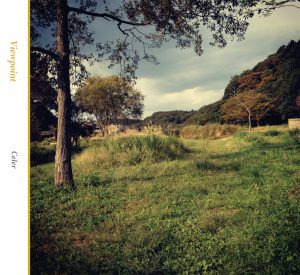Seashore isn’t just music for the shoreline. In front of the tiny, broken shells and the rubbery, inked strands of jet-black seaweed, the single can be seen shining a vivid image of sunny suburbia, awash with special, sun-kissed moments that have spent years developing a healthy tan of happiness, a beautiful bronze that, with the passing of the years, reveals itself fully. Oh, Yoko, the duo responsible for extracting this state of mind, comprises of Rie Mitsutake (Miko), and Will Long (Celer). Seashore is music for closed eyes, for deepening thoughts of cloudless appreciation, descending over the record and covering the seascape imagery as it does so.
The duo have a long history when it comes to solo releases, and luckily for us they’re not ones to rest for too long a period. Their music together as Oh, Yoko is a subtle departure when considering their individual, stylistic output, and as a result, Seashorecan be viewed as a separate entity, musically universal only in its lovely, docile appearance and innocent nature. Shimmering as if arriving on the outskirts of a vague dream, the music on this three-track-single rejuvenates the air and dispels the space of January blues, and turns a new year slump into a soothing, thankful shower, where you just can’t help but smile. In fact, a decent way to describe Seashore would be with the frequently used smiley emoticon; =)
Eyes closed may be the most effective way to experience Seashore (it’s strange to think that with our eyes closed, we frequently see clear). Seashore contains such revelations; that, on the surface, things are never as bad as we perceive them to be. The music is capable of influencing our perception and outlook, transforming negative into positive. Music that can achieve this – and only as a single- is very potent. It has all the accessibility of light pop, but never compromises itself with the resulting quality (unlike pop.) The duo behind Oh, Yoko are musical heroes who know how to pour the perfect dose of affectionate piano, introverted guitar, light ambient and even lighter electronics like a cool drink, complete with ice, on a scorching day. They also know how to hold all of these elements together in a subtle interplay, fluid and uncluttered, and they also know when enough is enough; put them all together and Seashore is an affectionate debut sprinkled with a dabble of ambient pixie-dust.
Away from the beach, a feathery atmosphere invites a deepening piano, and Mitsutake’s hush of a vocal caresses a pillow-soft, protective melody that seems to drift endlessly. In this sleepy suburb, the patter of paws and the meows of a cat arrive on the air, either along the street or right beside our feet. A quiet mid-afternoon is in store, a seven-minute meditation during the day to rewind, relax and recuperate. All the music really desires is some affection, like a much needed hug after one of those days.
Trees sway in the breeze, and the full scent of optimism and promise is a close excitement. The instrumental B-Side, mixed by Terre Thaemlitz, adds a slightly restless ambient layer on top, perhaps tinted with a quick flicker of everyday stress, but it isn’t enough to dissuade the peace from entering the atmosphere. It’s an afternoon spent at home on a sleepy day.
Against the constant push and pull of the tide, the piano’s features are slowly rubbed away until the notes are submerged under only a trickle of warm, turquoise water. The sound of Seagulls circle a harbour overhead, only to coast further inland – perhaps into the very same suburbs. Landing beside the birds, a breezy guitar melody shrouded in a rosy light. Passing notes repeat the distance of an interval, like the sirens of police cars driving past in the street, but even this can’t erase the stillness of a tranquil day-dream, an outlet for peace to descend in a quiet, Japanese suburb.
DJ Sprinkles closes the single, dressing up the track for the approaching evening with a sparkling, electronic beat and a delicious atmosphere of love surrounded. The atmosphere remains in a stratosphere of unfading optimism; the music is medicine. Tranquil, undemanding and introverted, Seashore is a beautiful introduction to a new team completely at home in their natural environment. Oh, Yoko are practically telling us to trust life a little more, and enjoy it. Everything’s gonna be alright; it’s as sure as the rhythm of the tide. Seashore is a lovely delight of polite positivity. Open your eyes and smile.
Link


